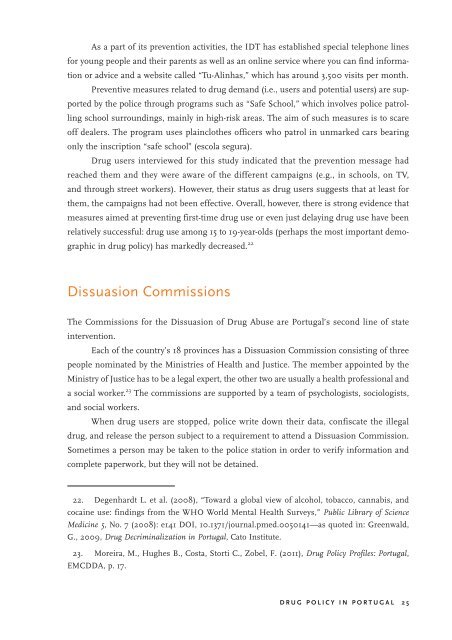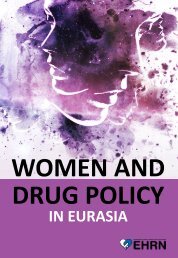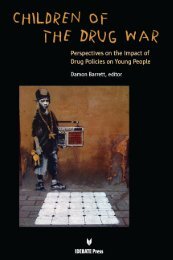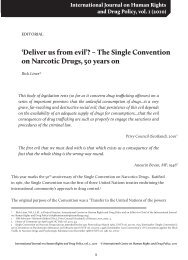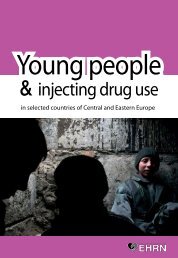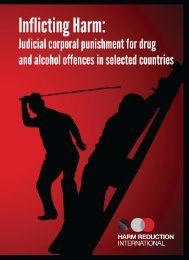From the Mountaintops-2011-Portugal-proof3.indd - Global Initiative ...
From the Mountaintops-2011-Portugal-proof3.indd - Global Initiative ...
From the Mountaintops-2011-Portugal-proof3.indd - Global Initiative ...
You also want an ePaper? Increase the reach of your titles
YUMPU automatically turns print PDFs into web optimized ePapers that Google loves.
As a part of its prevention activities, <strong>the</strong> IDT has established special telephone linesfor young people and <strong>the</strong>ir parents as well as an online service where you can find informationor advice and a website called “Tu-Alinhas,” which has around 3,500 visits per month.Preventive measures related to drug demand (i.e., users and potential users) are supportedby <strong>the</strong> police through programs such as “Safe School,” which involves police patrollingschool surroundings, mainly in high-risk areas. The aim of such measures is to scareoff dealers. The program uses plainclo<strong>the</strong>s officers who patrol in unmarked cars bearingonly <strong>the</strong> inscription “safe school” (escola segura).Drug users interviewed for this study indicated that <strong>the</strong> prevention message hadreached <strong>the</strong>m and <strong>the</strong>y were aware of <strong>the</strong> different campaigns (e.g., in schools, on TV,and through street workers). However, <strong>the</strong>ir status as drug users suggests that at least for<strong>the</strong>m, <strong>the</strong> campaigns had not been effective. Overall, however, <strong>the</strong>re is strong evidence thatmeasures aimed at preventing first-time drug use or even just delaying drug use have beenrelatively successful: drug use among 15 to 19-year-olds (perhaps <strong>the</strong> most important demographicin drug policy) has markedly decreased. 22Dissuasion CommissionsThe Commissions for <strong>the</strong> Dissuasion of Drug Abuse are <strong>Portugal</strong>’s second line of stateintervention.Each of <strong>the</strong> country’s 18 provinces has a Dissuasion Commission consisting of threepeople nominated by <strong>the</strong> Ministries of Health and Justice. The member appointed by <strong>the</strong>Ministry of Justice has to be a legal expert, <strong>the</strong> o<strong>the</strong>r two are usually a health professional anda social worker. 23 The commissions are supported by a team of psychologists, sociologists,and social workers.When drug users are stopped, police write down <strong>the</strong>ir data, confiscate <strong>the</strong> illegaldrug, and release <strong>the</strong> person subject to a requirement to attend a Dissuasion Commission.Sometimes a person may be taken to <strong>the</strong> police station in order to verify information andcomplete paperwork, but <strong>the</strong>y will not be detained.22. Degenhardt L. et al. (2008), “Toward a global view of alcohol, tobacco, cannabis, andcocaine use: findings from <strong>the</strong> WHO World Mental Health Surveys,” Public Library of ScienceMedicine 5, No. 7 (2008): e141 DOI, 10.1371/journal.pmed.0050141—as quoted in: Greenwald,G., 2009, Drug Decriminalization in <strong>Portugal</strong>, Cato Institute.23. Moreira, M., Hughes B., Costa, Storti C., Zobel, F. (<strong>2011</strong>), Drug Policy Profiles: <strong>Portugal</strong>,EMCDDA, p. 17.DRUG POLICY IN PORTUGAL 25


